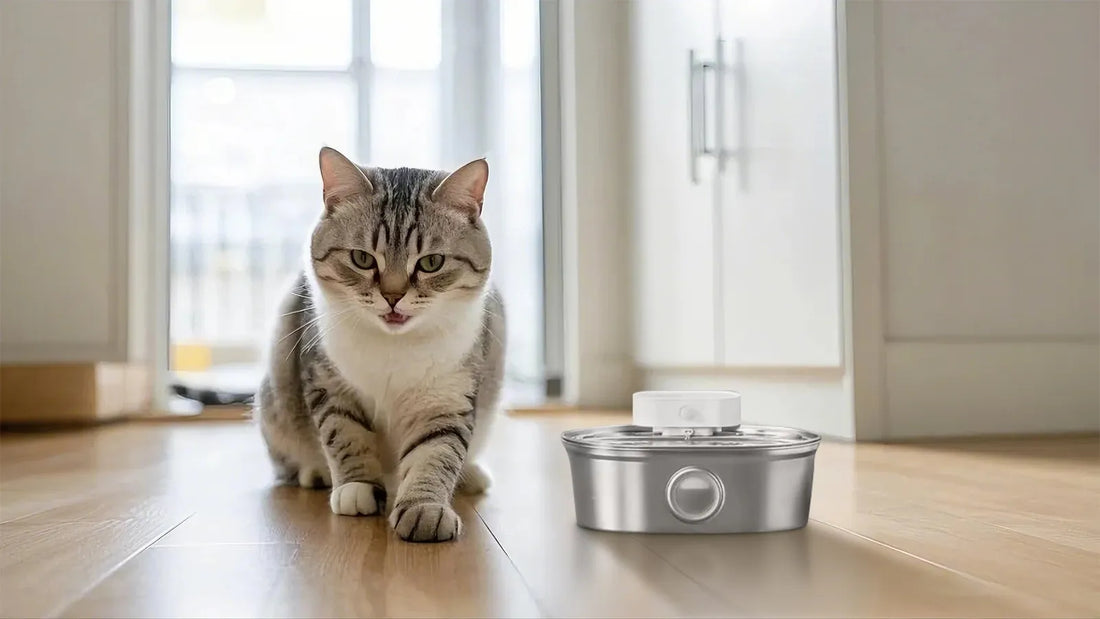Keeping your dog's bowl or feeder clean is essential for their health and well-being. A dirty bowl can harbor bacteria, mold, and other harmful pathogens that can make your furry friend sick. In this comprehensive guide, we'll walk you through the best practices for cleaning your dog's bowl or feeder, ensuring it remains a safe and hygienic space for your pet.
Why Cleaning Your Dog's Bowl or Feeder is Important
Regular cleaning of your dog's bowl or feeder is crucial for several reasons. First, it prevents the buildup of harmful bacteria that can cause infections or illnesses. Second, it ensures that your dog's food and water remain fresh and uncontaminated. Lastly, a clean bowl or feeder is more appealing to your pet, encouraging them to eat and drink regularly.
Materials You'll Need
Before you start cleaning, gather the necessary materials. You'll need:
- Mild dish soap
- Warm water
- A sponge or brush
- White vinegar or baking soda (optional)
- A clean towel or drying rack
Step-by-Step Cleaning Process
Step 1: Empty the Bowl or Feeder
Start by emptying any remaining food or water from the bowl or feeder. Dispose of leftover food properly to avoid attracting pests.
Step 2: Rinse with Warm Water
Rinse the bowl or feeder thoroughly with warm water to remove any loose debris. This step helps to loosen any stuck-on food particles.
Step 3: Apply Dish Soap
Apply a small amount of mild dish soap to a sponge or brush. Scrub the bowl or feeder thoroughly, paying special attention to the corners and edges where bacteria can accumulate.
Step 4: Rinse Again
Rinse the bowl or feeder thoroughly with warm water to remove all soap residue. Soap residue can be harmful if ingested by your dog.
Step 5: Disinfect (Optional)
For an extra layer of cleanliness, you can disinfect the bowl or feeder. Use a mixture of equal parts water and white vinegar or a paste made from baking soda and water. Let it sit for a few minutes before rinsing thoroughly.
Step 6: Dry Completely
Dry the bowl or feeder with a clean towel or let it air dry on a drying rack. Ensure it is completely dry before refilling it with food or water to prevent mold growth.
Additional Tips for Maintaining a Clean Bowl or Feeder
Daily Cleaning
Make it a habit to clean your dog's bowl or feeder daily. This routine helps to prevent the buildup of bacteria and keeps the feeding area hygienic.
Weekly Deep Cleaning
In addition to daily cleaning, perform a deep clean once a week. This involves using a disinfectant and thoroughly scrubbing every part of the bowl or feeder.
Inspect for Damage
Regularly inspect the bowl or feeder for any signs of damage, such as cracks or scratches. Damaged bowls can harbor bacteria and should be replaced immediately.
Use Stainless Steel or Ceramic Bowls
Stainless steel or ceramic bowls are easier to clean and less likely to harbor bacteria compared to plastic bowls. They are also more durable and long-lasting.
Keep the Feeding Area Clean
Don't forget to clean the area around the bowl or feeder. Wipe down the floor or mat where the bowl is placed to prevent the spread of bacteria.
Common Mistakes to Avoid
Using Harsh Chemicals
Avoid using harsh chemicals or bleach to clean your dog's bowl or feeder. These substances can be harmful if ingested by your pet.
Neglecting to Rinse Thoroughly
Always rinse the bowl or feeder thoroughly after cleaning. Soap or disinfectant residue can be harmful to your dog.
Not Drying Properly
Ensure the bowl or feeder is completely dry before refilling it. Moisture can promote the growth of mold and bacteria.
Ignoring Cracks or Scratches
Replace any bowl or feeder that has cracks or scratches. These imperfections can harbor bacteria and are difficult to clean thoroughly.
Final Thoughts
Cleaning your dog's bowl or feeder is a simple yet crucial task that can significantly impact your pet's health. By following the steps and tips outlined in this guide, you can ensure that your dog's feeding area remains clean, safe, and hygienic. Remember, a clean bowl or feeder is not just about aesthetics; it's about keeping your furry friend healthy and happy. So, make it a priority to clean your dog's bowl or feeder regularly and enjoy the peace of mind that comes with knowing you're providing the best care for your pet.

![[🎃Halloween Sale]UAHPET Stainless Steel Self-Cleaning Cat Litter Box](http://www.uahpet.com/cdn/shop/files/1-cat-litter-box.jpg?v=1761890851&width=1600)












